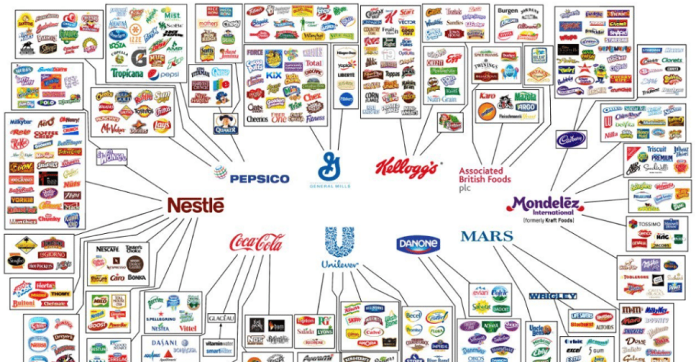Is “corporate ethics” an oxymoron? Do you have to be a jerk to be a successful CEO? Is exploitation the only path to profit?
The good news is that many companies, big and small, in the food economy are blazing a different path through Wall Street’s jungle of greed, demonstrating that money and morality can be compatible.
Texas supermarket chain HEB, for example, has drawn an intensely loyal customer base by investing in good wages and benefits for employees, showing up in such emergencies as pandemics, hurricanes, freezes, etc. to give essential supplies and hands-on help, and being an involved and supportive neighbor to the hundreds of unique communities it serves.
Elsewhere, Maine Grains is “relocalizing” the business of milling grain by working with local farmers who’d been abandoned by global grain marketers like Ardent and Gold Medal. They’re producing nutrient-rich flours from heritage grains, boosting the local economy in the process.
Then there’s Bob’s Red Mill, which also artfully mills its products from diverse, natural grains — and it’s 100 percent employee-owned.
These are part of a rising business alternative to the selfish, profiteering ethic of Fortune 500 titans. Called certified B Corporations, they definitely exist to make a profit, but they are equally focused on having a positive social impact, prioritizing fair wages, environmental protections, and healthy communities as core elements of their missions — even making those goals legal requirements of their corporate charter.
Ben & Jerry’s, Amy’s Kitchen, King Arthur Baking, and New Belgium Brewery are just a few more of some 3,800 other businesses now organized as B Corps. Though not pretending to be perfect, they’re at least striving to be more than money grubbers, instead trying to contribute to the Common Good.
For more information on the products and practices of B Corps, go to BCorporation.net.
Related posts:
Views: 0
 RSS Feed
RSS Feed















 September 26th, 2021
September 26th, 2021  Awake Goy
Awake Goy 

 Posted in
Posted in  Tags:
Tags: 
















